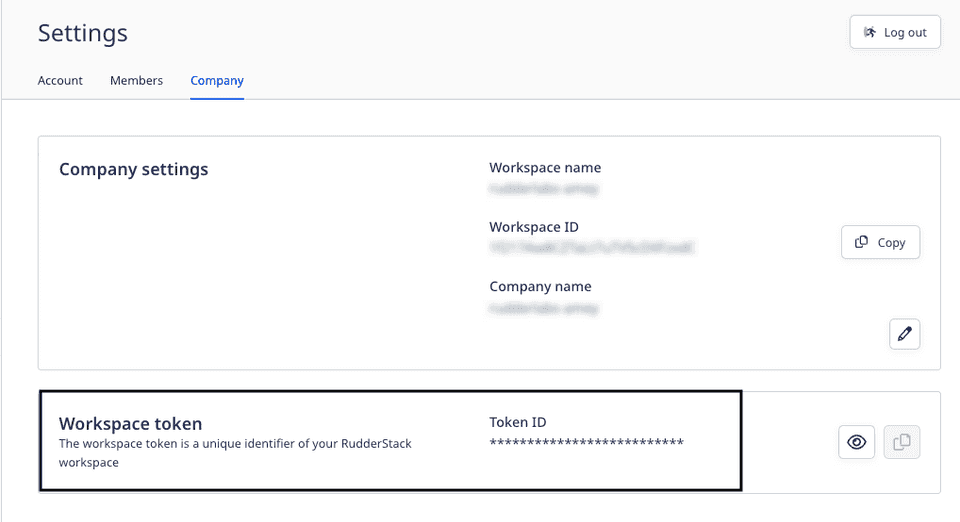This guide lists the steps required to set up the RudderStack server (backend) in your Docker environment.
RudderStack-hosted control plane
If you're using a RudderStack-hosted control plane, follow these steps to set up the data plane in your Docker environment:
- Log into your RudderStack Open Source dashboard.
- Copy your workspace token from Settings > Company, as shown:

- Download the
rudder-docker.ymldocker-compose file. - Replace
<your_workspace_token>in this file with the workspace token copied above. - Then, open your terminal, navigate to the directory where you want to install RudderStack, and run the following command:
docker compose -f rudder-docker.yml up -ddocker-compose -f rudder-docker.yml up.Self-hosted control plane
If you have self-hosted the control plane using the open-source Control Plane Lite utility, follow Docker instructions to set up the data plane.
Sending test events
Once you have successfully performed the steps above, follow the Sending Test Events guide to verify the installation.
Contact us
For more information on the topics covered on this page, email us or start a conversation in our Slack community.